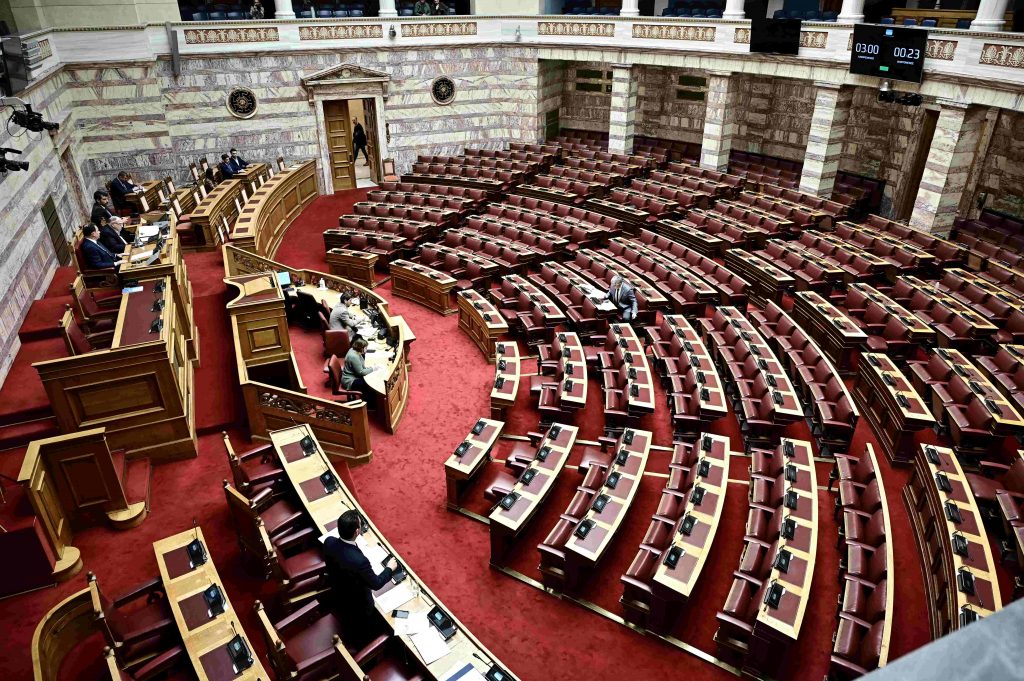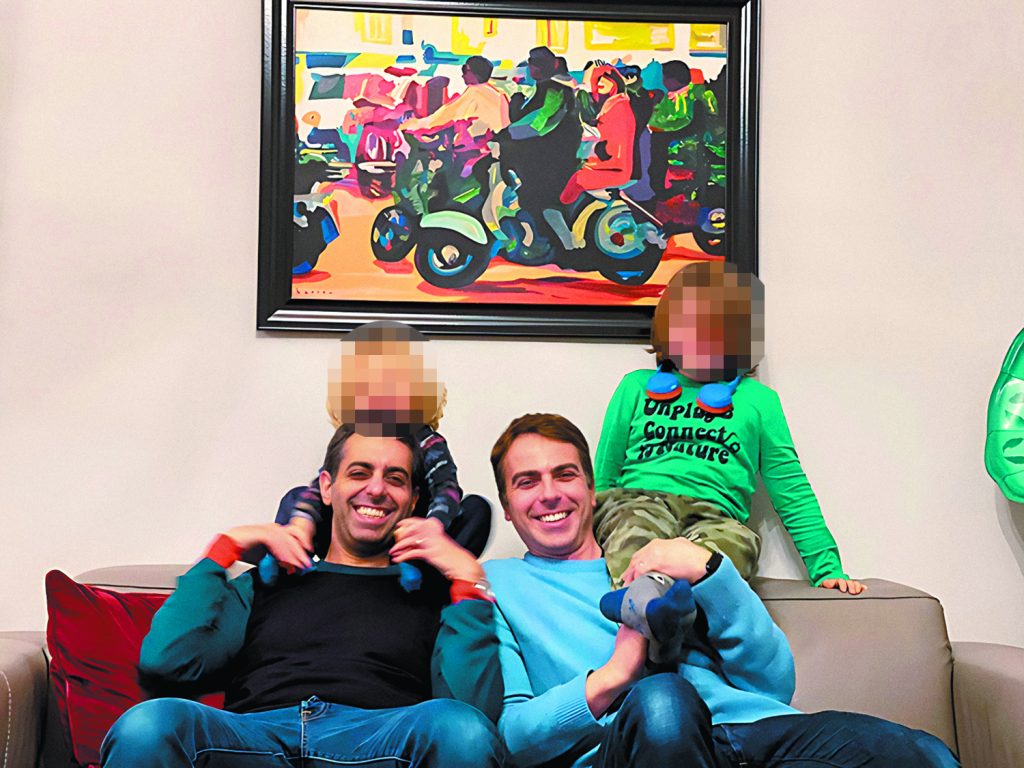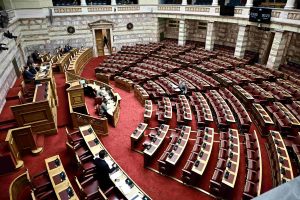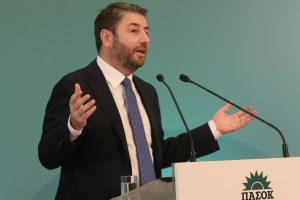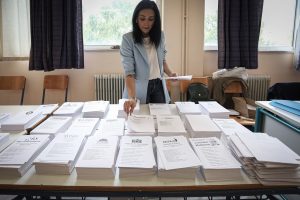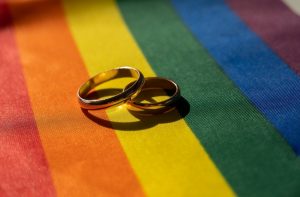Three same-sex couples talk to To Vima about their families. Victoria gave birth to Niovi from one of Christina’s eggs. Now back in Athens, they live in a state of perpetual fear about what the next day might bring, because under Greek law Christina is Niovi’s unknown parent (meaning the parent who doesn’t appear on her birth certificate).
Konstantinos and Michalis live in the UK with their two boys, Harley and Ricky. Harley was so happy when his baby brother came along, his teacher taught an entire class based on his story.
Finally, Helen and Kate live in Spain with their two daughters, Francesca and Alexandra. They would love to return to Greece, but cannot—if they did, Kate would lose every right in respect of their children.
Greece: Victoria & Christina
“If something happens to me…”
A friend of the family opens the door. “Come in, one mom will be right down, and the other mom will be here very soon…”. On the carpet, little Niovi is playing with her toys while she waits for her mothers to get back from work. It’s Friday. A weekend full of games and stories lies ahead. Victoria Kalfaki and Christina Leimoni met in 2008, fell in love, and wanted to have a family together. So, in 2015, they left for the UK.
“One of the reasons we left, apart from our careers, was that we wanted to be in a country where there were no filters or barriers, social or legislative, to our creating a family together,” says Christina. A few years later, Niovi came into their lives. “We wanted to create something together that would be both of ours. So we decided I’d carry Christina’s egg. Our doctor helped us a lot. So, whichever way you look at it, we truly had our child together,” Victoria adds.
Christina explains how anxious she was about moving back to Greece. “We got on the plane as a family, and when we arrived in Greece Victoria was the mother of our child and I had the same legal relationship with Niovi you do, which is to say no relationship at all,” she says bitterly.
At her side, it’s clear that Victoria shares Victoria’s pain. “Because I carried and gave birth to our little one, for the Greek state, that makes me the child’s mother. Christina is the missing parent. If something happened to me, the child would automatically go to social services and lose her remaining family,” Victoria explains, describing a fear that hangs over their every waking moment.
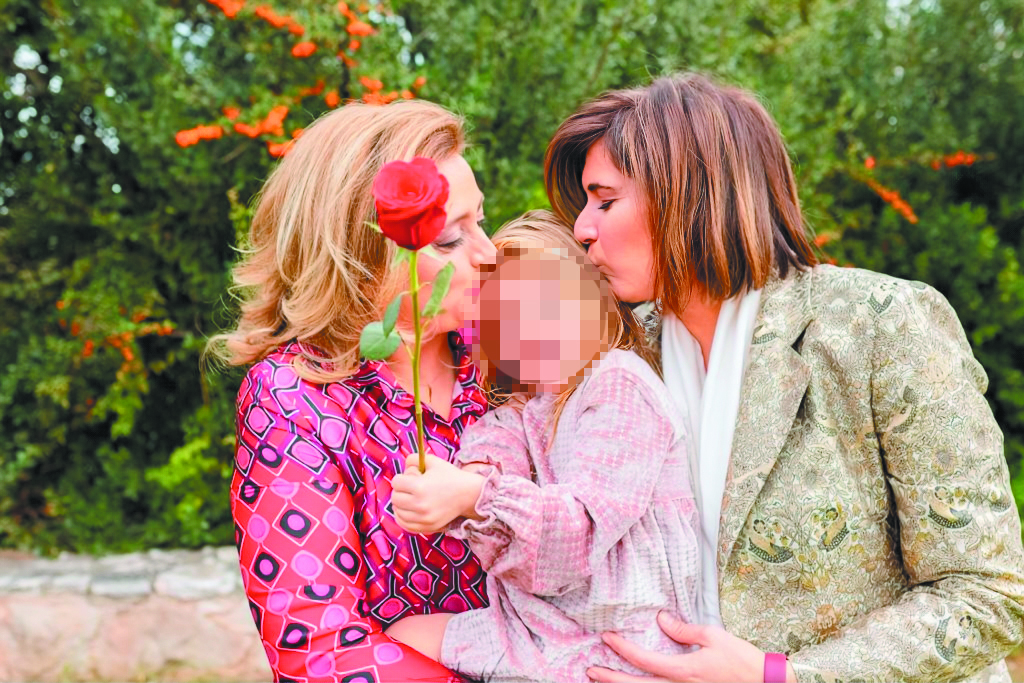
UK: Michalis & Konstantinos
“Everything is more straightforward for kids”
Harley asked his dads for a baby brother to play with. He calls them both “daddy.” Konstantinos Androulakis and Michalis Christodoulidis, who live in the UK, wanted very much to make his wish come true. Besides, they’d often talked about having a second child. Aged five at the time, Harley was so excited that he announced the news to the whole class: he was going to have a baby brother. His friends were so excited and had so many questions, their teachers devoted an entire school day to alternative forms of family, with Harley answering everyone’s questions. A few months later, Ricky entered their lives. Today Harley-Giannis is eleven years old and Ricky-Michalis is six.
“Everything is more straightforward for kids than it is for us adults,” Konstantinos says when asked what he tells the boys when they ask why they have two dads. “In our case, our children have a mom, too. They know where they came from and how we became a family,” Michael adds, since both of their children were born into families that couldn’t raise them.
The main reason Michalis and Konstantinos are not returning to Greece is that a birth certificate here can identify a child as being of a father unknown, but not of an unknown mother. Which means that one of them would automatically become a ghost parent.
In the UK, the protocol is crystal clear. It is a lengthy process, with a long period of preparation involving daily sessions with child psychologists over nine months before the child and parents interact. It also involves meeting children raised by same-sex couples. “We saw happy children,” Konstantinos and Michalis say. Konstantinos remembers one little kid telling him “I don’t feel bad for my family. I feel bad for the people who ask about my family.”
Spain: Eleni & Kate
“Can mummy come too?”
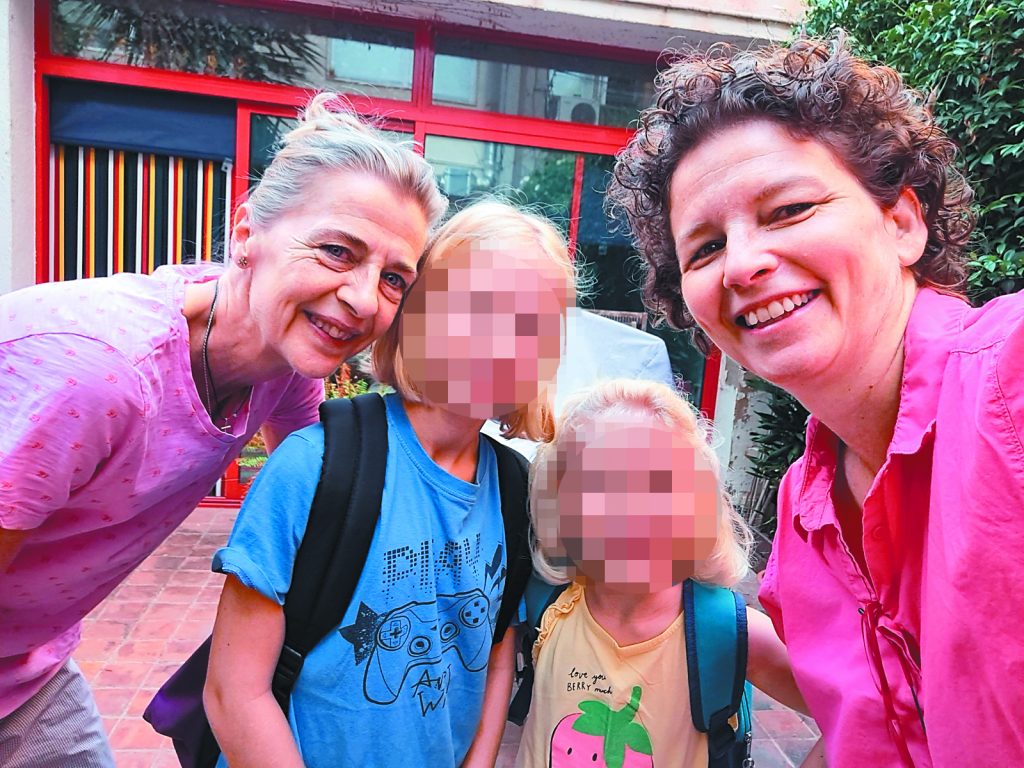
Eleni Maravelia is Greek and married to Kate, who’s British. They live together in Spain. They were lucky, because in Spain the law giving same-sex couples access to marriage, adoption and assisted reproduction came into force back in 2005. Which is how they were able to have two girls together by IVF: Francesca, who’s ten, and Alexandra who’s six and a half. Their classmates don’t ask them for explanations. “It was a given from the start that Francesca and Alexandra have two mothers.
Personally, I believe that when a child is secure and confident, no one and nothing can upset them. My daughters know that they have two mothers who love them, so there’s no way they’ll let themselves be teased about their family,” says Eleni Maravelia. She adds with a smile: “Neither of my two daughters have ever asked me why they don’t have a daddy. But they have both asked me to explain how children are made.”
Eleni Maravelia is happy that the conversation has finally begun in Greece. As she says: “I wouldn’t call myself an activist, but I had to defend my children’s rights, because as things stand now, Kate, their mother, would be totally unrelated to them if we went back to Greece.”
Eleni has done her best to explain to her girls about the bill the Greek parliament will soon be voting on, and their reaction, as she describes it, was enthusiastic. “My little daughter, who is only six and a half, said to me: “So can mummy come with us to Greece now?” They were both so happy. I wish I’d taken a picture of their shining little faces.”
